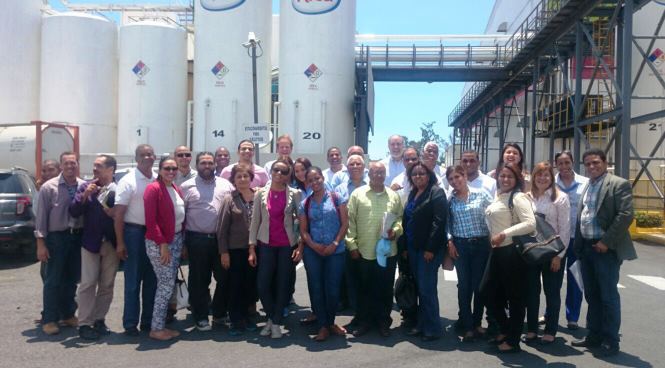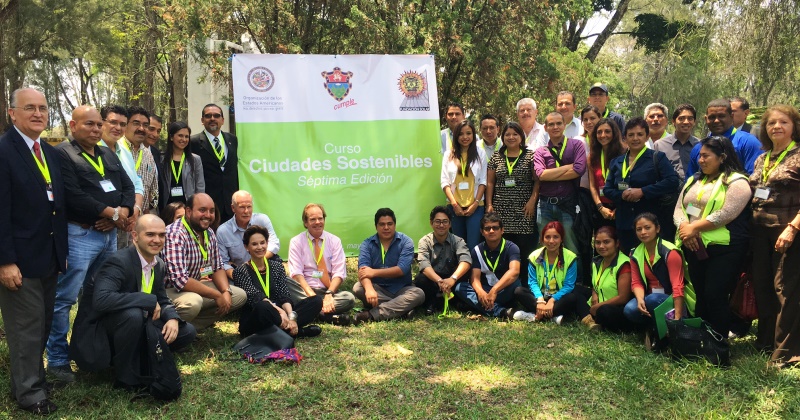
At an urbanization rate of 80 per cent-the highest in the world-the Americas faces a series of socio-economic pressing issues including declining infrastructure, rising energy demand, lack of adequate waste management systems, congestion and air pollution, and increased vulnerability to natural disasters. Through this Initiative implemented under two phases (phase I 2013-2016; phase II 2015-2017), the OAS has imparted these courses to provide theoretical and practical knowledge on the different elements that contribute to the development of sustainable cities to different stakeholders involved in planning processes and urban development in different Member States.

The 6th Edition of the Sustainable Cities Course was held in Santo Domingo, on April 5-8, in coordination with the National Energy Commission. The course aimed to provide and hone sustainable development skills to 35 government officials and members of civil society. Course objectives included: Provide state of the art knowledge on the set of systems involved in the urban setting combining social and physical science approaches.
The content covered modules on urban sustainability, waste management and water resource management in an urban context, sustainable transport solutions and mobility, resilience to natural disasters, renewable energy and energy efficiency and built environment and sustainability. Case studies analysis and identification of best practices, and sharing firsthand experience regarding the benefits of green infrastructure and energy efficiency demonstration project through a field visit to Pasteurizadora Rica. Through this activity, students were able to come in contact with the operations and functioning of Rica biomass plant that generates heat from waste for processing fruit juices and milk. This field visit had great value for participants given that the Dominican Republic is a leading country in Central America and the Caribbean in the use of biomass as an energy source.
The Course was inaugurated by the Director of Alternative Sources and Rational Energy Use of the Dominican Republic National Energy Commission, Francisco Mariano and the OAS Country Representative in the Dominican Republic, Arecli Azuera. Closing ceremony was attended by Timothy McNally, Economic Officer of the US Embassy of the Dominican Republic. The course was well received with participant evaluations giving an overall approval rating of 91%.

The most recent course took place in Guatemala City on May 24-27. The course methodology included theoretical presentations that combined the professor’s input with student participation. Case studies were presented and discussed in order to develop practical skills regarding the issues discussed. An online portal created for this Course provided background readings and material on each module so that students could prepare in order to enhance learning and assimilation of the program content. The course combined theory with practical exercises in which the students experienced the content of each module applied to real life situations through lectures, readings, group exercises and discussion.
The imperative of building sustainable cities and communities in the hemisphere was first acknowledged during the First Summit on Sustainable Development in the Americas held in Santa Cruz de la Sierra in December 1996. In this context, a Plan of Action was released as one of the main outputs of this Summit. Since then, the Department of Sustainable Development of the Organization of American States (OAS-DSD) has been working with Member states in four areas under the sustainable cities theme: economic development, housing, pollution prevention and environmental protection, and sustainable transport.
The objective of the Sustainable Communities in Central America and the Caribbean initiative is to strengthen the capacity of NGOs and community associations in in these regions to build sustainable communities within the context of the Energy and Climate Partnership of the Americas (ECPA).
 View Map
View Map